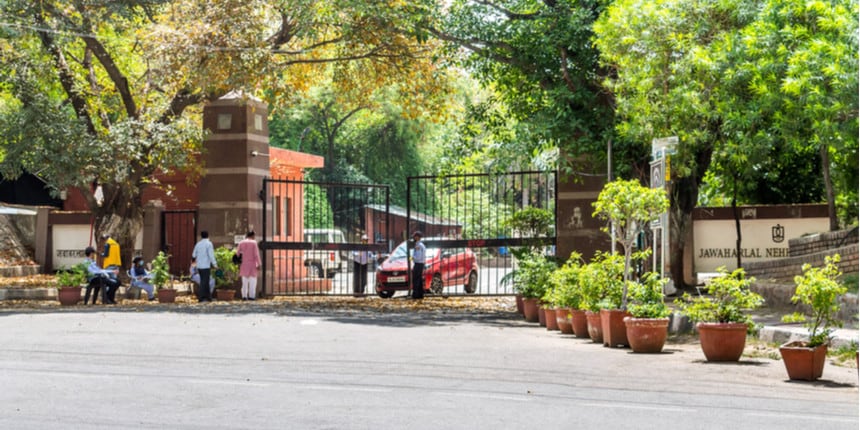DU LLB Fee Structure 2026 - Check Complete Details
Delhi University is one of the country's preferred universities among students. The Delhi University law programmes include BA LLB (Hons.), BBA LLB (Hons.), 3-year LLB, and LLM. Interested candidates will be interested in knowing about the DU LLB 2026 fee structure. The fee for DU 5-year LLB is considerably higher than the fees for DU LLB and DU LLM. In this article, candidates can find the programme-wise DU law fee structure for all four law courses.

The university will conduct DU LLB 2026 admissions and DU LLM 2026 admissions through CUET law exams. The DU 5-year LLB admissions will be done based on scores in the Common Law Admission Test. In 3-year LLB and LLM courses, the university offers roughly 2,888 and 125 seats, respectively. For DU 5-year LLB, the university offers 120 seats.
DU Law 2026 Fees Structure Details
The tables given below provide the Delhi University Law fee breakup for the three programmes. The DU LLB and DU LLM fee structure is the same and is considerably less than for DU 5-year LLB. The BA LLB 2026 fee is approximately 30 times the fees for LLB and LLM.
DU 5-year LLB Fees Strucutre 2026
Particulars | Fees |
DU 5-year LLB fee structure | Rs. 2,08,550 (Rupees Two Lakh Eight Thousand Five Hundred and Fifty only) |
* The UoD may revise the fees
DU LLB & LLM Fee Structure 2026
| Particulars | LLB | LLM |
|---|---|---|
Tuition fees | Rs 240 | Rs 240 |
| University Students' Welfare Fund | Rs 250 | Rs 250 |
Faculty/Department/ Student Welfare Fund | Rs 790 | Rs 790 |
| University Development Fund | Rs 1200 | Rs 1200 |
| University Facilities and Service Charges | Rs 1250 | Rs 1250 |
Faculty/Department Facilities and Services Charges | Rs 3160 | Rs 3160 |
| EWS Support University Fund | Rs 200 | Rs 200 |
| Delhi University Students Union (DUSU) Fund | Rs 40 | Rs 40 |
| Total | Rs 7130 | Rs 7130 |
Other Fees for DU LLB
Candidates have to appear for various entrance exams and they apply for registration at Delhi University. The selection of candidates will be made based on the scores in the accepted entrance exam. The details of fees for the entrance exam and DU LLB registration is given below.
DU Law 2026 Registration Fees
| Particulars | Details |
|---|---|
| DU CLAT 2026 registration fees | Rs 4000 for general/OBC, Rs 3500 for SC/ST |
| DU BA LLB 2026 registration fees | Rs 1500 for UR/OBC-NCL/EWS, Rs 1000 for SC/ST |
| CUET PG registration fees | Rs 1400 for general, Rs 1200 for general-EWS or OBC-NCL,Rs 1100 for SC/ST (up to 2 papers) |
| DU LLB 2026 registration fees | Rs 250 for general/OBC, Rs 100 for SC/ST |
| DU LLM 2026 registration fees | Rs 250 for general/OBC, Rs 100 for SC/ST |
Frequently Asked Questions (FAQs)
You can register for DU LLB 2026 visiting the official website of Delhi University.
Delhi University has 2,888 seats available in a 3-year LLB course.
The LLB and LLM courses offered by DU have an annual fee of approximately Rs. 7130.
The DU 5-year LLB programmes include BA LLB (Hons.) and BBA LLB (Hons.)
